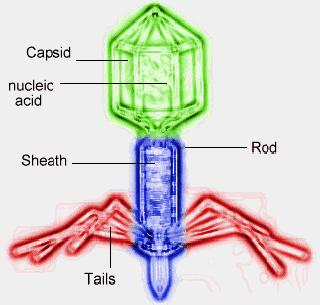Matthew Simmons
Matthew Simmons lives in Seattle.
Matthew Simmons lives in Seattle.
 Take a poem or very short prose piece you really like and send it to a small number of poet/prose writing friends. Let’s say five. Send along this message:
Take a poem or very short prose piece you really like and send it to a small number of poet/prose writing friends. Let’s say five. Send along this message:
“This is the spreading of an infection. Read this piece of writing. Become infected by it. Respond to it with a piece of writing that includes a line or a phrase from it. Send the results to the author of this piece of writing. (If you do not have time to do so, you have resisted the infection. Thank your immune system.) Also, send the results to five more people and infect them. Send this message along with it. When you receive the results, return them all to the person who started the infection.
“This infection began with _____.” (Fill this in only if you are the first person to start the infection.
Collect the results. See how the infection has spread. See how the virus has mutated.
At some point, tell us how it went.

Justin Taylor and Priestess singer/guitarist Mikey Heppner
(Jimmy Chen blackmailed me into putting this up. Sooooo:

Berobed Jimmy Chen and berobed rapping Buddhist monk Mr. Happiness
Gain some weight. Keep your hair short. Off you go.)
Additional material after the cut. READ MORE >
Justin is on Electric Literature and the story’s kinda badass. E.g.: “I don’t know dick about Latin but some things are just obvious and sometimes I think that’s what God is: the obvious, resplendent and intractable and dumb.” (Sorry I didn’t notice this sooner.)
Just heard from Victoria at Underland: Brian Evenson’s Last Days won the American Library Association Horror Novel of the Year Award.
httpv://www.youtube.com/watch?v=q0TYY7jflz8
This is one of my favorite documentaries. The quality of this Youtube transfer is not great, but it’s worth it for the voice over.
I have trouble writing accurately about the way large groups of people congregate. This means my stories tend to cut away as many characters as I can, leaving singles and duos and trios doing all the work. I depopulate, and sometimes I think maybe I should try to populate and maybe even over populate a story. But I’m hesitant. You, too? Maybe repeatedly watching this will help.
Power quote from about three and a half minutes into part two: “This artifact is a design object the purpose of which is to punctuate architectural photographs. It has some utility as a bench but is usually placed in isolation.”
How often do you, as a writer, favor an object, a character, a fleeting moment’s emotional eruption for it’s aesthetic beauty instead of its utility to a story? Is it wrong to do this? Is it right? Is there a middle ground?

I wrote a little piece on my blog, and a friend emailed me to say that he found it a bit disturbing because it felt hostile and tribal to him. Much of this feeling seemed to come from the fact that the narrator is first person plural (talks about “we”) and he felt himself identifying with (“Hey, we! I’m a part of we.”) and then being disturbed by the tone of the piece.
Here’s a writing prompt: write in first person plural. Invite the reader in. Invite the reader to be a part of the story’s “we.” And then force the reader out. Repel the reader. Hard.
Open the door and let them into the party, and then make them regret having enjoyed the punch and cake.
But compel them first.
(And don’t go with the easy push back. It’s not hard to punch a person in the kidney or press on someone’s gag reflex. Find a subtler solution.)
Brandon Scott Gorrell is moving somewhere. He didn’t tell me where. Wherever he is moving, he will not be taking his books. You can buy his books. Cheap. Buy cheap books.
httpv://www.youtube.com/watch?v=n6bK5EPdQ1g
httpv://www.youtube.com/watch?v=toSWqyvpkYo
httpv://www.youtube.com/watch?v=qY1lHDXw6GM
Isaiah Toothtaker‘s record is free HERE. The first track samples Werner Herzog.
httpv://www.youtube.com/watch?v=z2Q7YRDL90E
or
httpv://www.youtube.com/watch?v=2T0Ofr6VYMI
Who wins? READ MORE >

Hey, writers! Where are you in the publishing process?
Denial: I think maybe I’ll write a novel. I have a really great idea for one. My friends think I’m a pretty good writer. I once got a rejection from The New Yorker that referred to the “obvious merit” of my fiction. Sure. I’ll write a novel and then send it to an agent!
Anger: No one is publishing me because they don’t understand how amazing my work is. They just don’t get it. Philistines. Agents won’t even look at my manuscript. The whole system is corrupt. You have to be one of those New York elites to get a book published. You have to be from money. You have to know people. You have to get an MFA. Publishing is a racket.
Bargaining: What the heck. I’ll go ahead and get an MFA. It might be fun to hang out with a bunch of writers like myself—people just trying to figure out how to get their work out for the world to see. It’ll be fun. I’ll learn some stuff about my craft. Maybe I’ll get into a huge argument in a workshop!
Depression: Even though I have an MFA, Knopf has not yet given me the big, Jonathan Safran Foer-esque, two-book deal. This sucks. Why have I been wasting my time? Publishers are only interested in turning people’s mildly funny conceptual blogs into books. Why the hell didn’t I just take a photo of my cat wearing a monocle, and then ask other people to submit photos of their cats wearing monocles to me? I’d have a book contract right now.
Acceptance: You know, it’s actually surprisingly easy for me to just do this myself. Maybe I’ll just start my own small press.